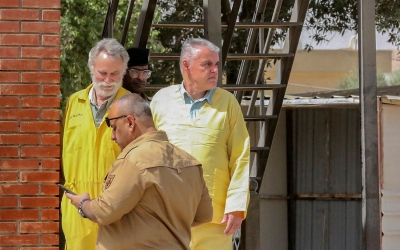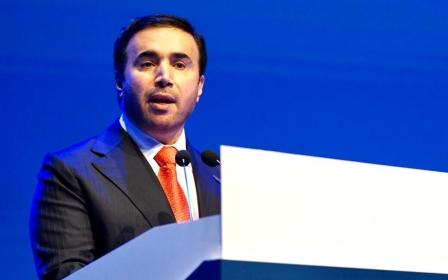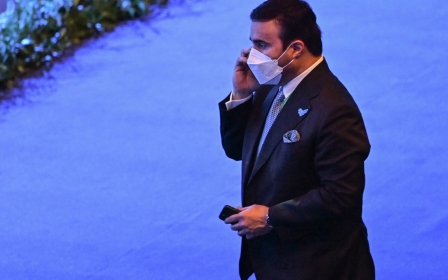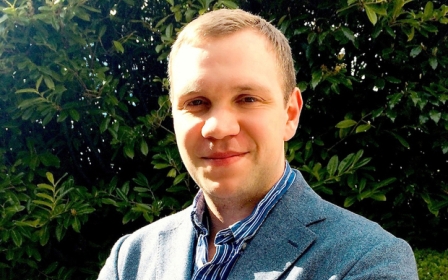Family of British man detained in Iraq over Qatar debt says he's 'deteriorating'

The family of a British man detained in Iraq over a debt owed to a Qatari bank is becoming increasingly concerned about his mental health and calling on Doha to drop the extradition request against him.
Brian Glendinning, originally from Fife in Scotland, was detained in the southern Iraqi city of Basra last month after flying to the country for work.
According to Radha Stirling, founder of Interpol monitoring organisation IPEX, Glendinning had previously worked in Qatar where he took out a loan from Qatar National Bank (QNB).
"He kept repayments up but during a Christmas return to Scotland, he became ill and took sick leave for two months," Stirling told Middle East Eye.
"He continued to pay his loan but his company cancelled his contract. Brian continued to make repayments and stay in communication with the banks, but struggled."
New MEE newsletter: Jerusalem Dispatch
Sign up to get the latest insights and analysis on Israel-Palestine, alongside Turkey Unpacked and other MEE newsletters
Upon flying to Iraq on 12 September to begin work at the BP oil refinery, the 43-year-old construction engineer was cuffed and detained over an Interpol Red Notice issued by Qatar over the debt.
'He's getting looked after where he is. His mental health is in tatters because he believes he's not getting home. Every day he's deteriorating'
- John Glendinning
John Glendinning, Brian's brother, told MEE that his brother only found out then that he had been sentenced to jail in absentia in Qatar in 2017 over the loan.
"He's getting looked after where he is. His mental health is in tatters because he believes he's not getting home. Every day he's deteriorating," he explained.
So far, Glendinning has received a number of consular visits from British officials, but until Qatar provides the requested extradition paperwork to the Iraqi authorities, said Stirling, there is little that can be done.
She pointed out that Qatar had never withdrawn an extradition request in past.
John said that the situation was causing immense hardship for the family, who was becoming more worried about Glendinning's mental health, as well as their own.
"The strange thing is these situations bring the family together for obvious reasons, we're all rallying around, everyone," said John.
"I've just been going 100 miles an hour, and I'm back at work... I've been going 100 miles an hour."
Debt imprisonment
Most countries do not imprison people over unpaid debts. Qatar, along with neighbouring Gulf states like the United Arab Emirates (UAE), are amongst the few that do and Interpol has frequently been criticised for issuing red notices at their request over debts.
The organisation faced further criticism in November 2021 when it elected Ahmed Naser al-Raisi, an Emirati general accused of torture, as president.
Without naming Glendinning, the British Foreign Office told MEE that it was “providing support to a British man who has been arrested in Iraq and are in touch with the local authorities".
MEE contacted QNB for a statement but received no response by time of publication.
Glendinning's arrest comes months after the imprisonment of another British citizen in Iraq caused controversy between the two countries.
Jim Fitton, a geologist, was sentenced to 15 years in prison in June over allegations of antiquities smuggling in the country.
His imprisonment had provoked an outcry in the UK, with Fitton and his family both saying that he had not realised that it had been illegal to take fragments from a historic site in the country.
His conviction was later overturned by the Court of Cessation and he was released in August.
Middle East Eye delivers independent and unrivalled coverage and analysis of the Middle East, North Africa and beyond. To learn more about republishing this content and the associated fees, please fill out this form. More about MEE can be found here.





